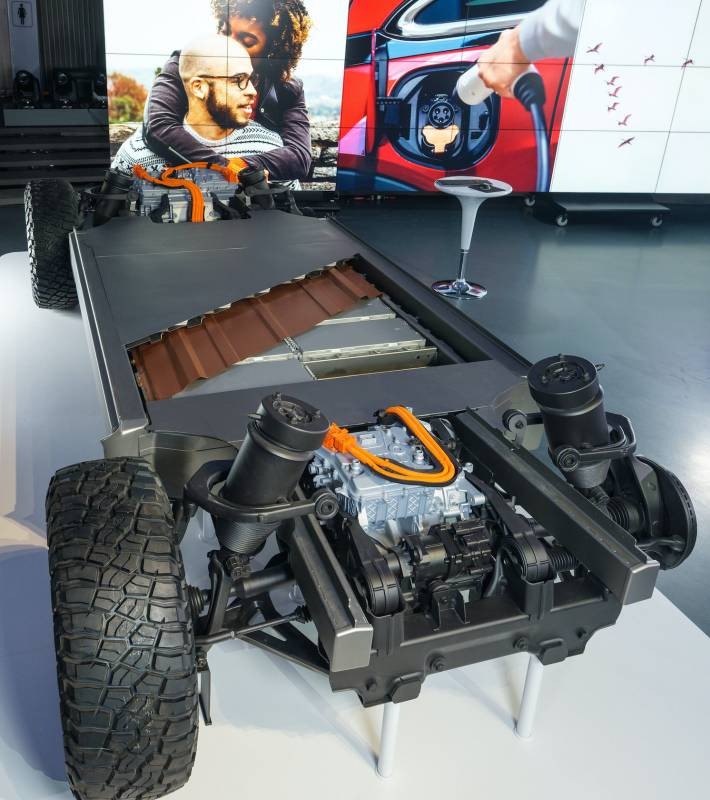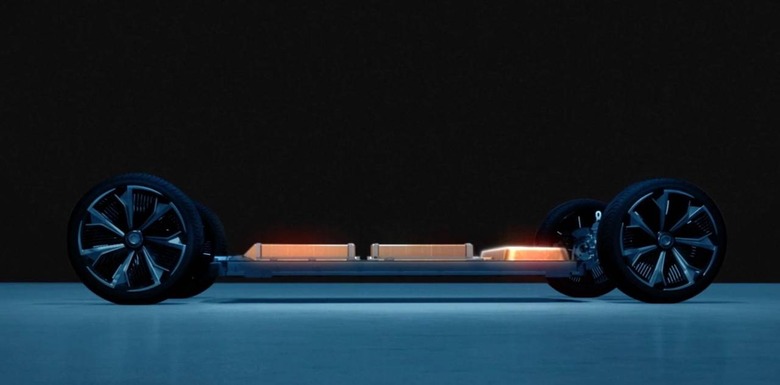GM Electric Van Leaks As Chance To Outmaneuver Tesla
GM is developing an electric van for business transportation and urban deliveries, it's been reported, aiming to carve out a space in the segment before rivals like Tesla can mobilize. The automaker revealed its Ultium platform for EVs earlier this year, complete with new battery packs and more flexible electric motors.
Ultium will be the underlying architecture for a whole host of electric vehicles across GM's various brands. Cadillac, for example, will use the system for its upcoming Lyriq luxury crossover; GMC, meanwhile, will adapt the same platform for the new Hummer EV, rebooting a nameplate more familiar from gas-guzzling excess for a zero-emission – but high-performance – truck.
In total, indeed, GM says it aims to have at least 20 new EVs by 2023. That'll span everything from crossovers and SUVs through to sedans and hatchbacks, though so far the automaker has been tight-lipped on a potential business vehicle. Now, whispers of how that might work have broken through.

Codenamed GM BV1, insiders tell Reuters, the all-electric van is scheduled to go into production in late 2021. General Motors will use the same Detroit-Hamtramck plant it's intending to build the Lyriq and Hummer EV at for the van. The plant is the focus of a $2.2 billion investment as GM re-equips it for electrified production.
How it'll be launched is still to be decided. One possibility is that GM could use an existing brand familiar to utility buyers, such as GMC or Chevrolet. Alternatively it might use a new brand, potentially Maven, to better distinguish it from other vans offered.
For automakers, a second chance at the EV race
While GM declines to comment on the BV1 project, one thing is abundantly clear: the automaker doesn't want a repeat of how passenger electric vehicles shaped the market. Despite an early embrace of hybrids – which pair gas and electric drive – GM found itself overshadowed by Tesla. Elon Musk's company went on to shape expectations about electric vehicles, not only in terms of performance and price, along with technology, but around infrastructure such as public charging locations.
That struggle was only amplified with the arrival of the Model 3. Though Tesla's roll-out of its most affordable EV can hardly be described as smooth sailing, punctuated by production delays, criticisms around build quality, and Musk's own increasingly controversial public statements, the car nonetheless has gone on to dominate EV sales in its category.

What Tesla doesn't have, though, is a utility vehicle. Though the Cybertruck aims to take on pickups, it's far from a delivery vehicle in the traditional sense. Meanwhile, startup competition such as Rivian – sitting pretty on a stack of investment from Ford, Amazon, and others – is poised to attempt the same sort of disruption in vans that Tesla did in passenger cars. Next year, Rivian aims to begin producing all-electric vans for Amazon to use, as part of what's eventually promised to be a 100,000 strong fleet.
Ford isn't counting solely on Rivian either. It's planning a 2022 Transit EV, as it gives its best-selling midsize van an electric makeover. Mercedes has its upcoming EQV, meanwhile, an all-electric van that will be offered both cargo and passenger configurations.
